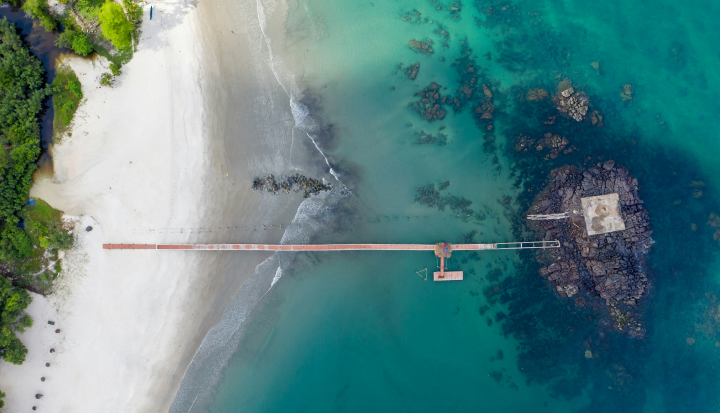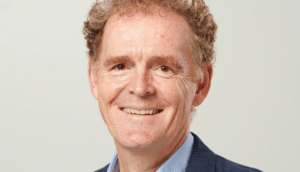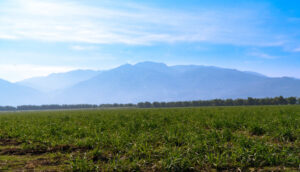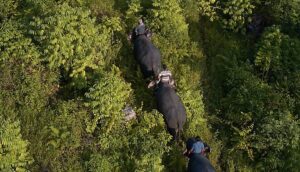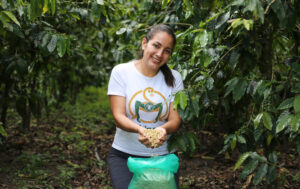AXA XL is committed to supporting its clients and playing its own part in the transition to a low carbon economy and resiliency in response to the changing climate. We recognise that there will be multiple transitions taking place around the world, at differing speeds and in different ways. To be successful, those transitions will need to strike a balance between energy security, energy sustainability and equitable energy access that is specific to the regional geography and the wider geopolitical, macroeconomic and weather-related context.
And more than that, those transitions and adaptations must take place in a fair and just fashion. We are committed to understanding the social implications of moving to a low carbon economy and the actions that we can take to positively influence the outcomes of that process.
Part of this work includes reimaging the consequences that the transition will have on people’s lives and communities; the ‘social impact’.
Broadly speaking, social impact refers to the social and environmental effect on people and communities that results from an action – or inaction. And the social and environmental outcomes of those actions are both tangible and, importantly, measurable.
At AXA XL we are mindful that, in tandem with our efforts to support clients and communities on their transition journeys and the road to net zero, we have a responsibility to ensure that those actions have a positive social impact on the people and communities they affect – beyond.
Positive partnership
Achieving positive social impact in the transition cannot be achieved in siloes. It requires a multifaceted, multi-pronged approach. And we believe that the results of pan-industry collaboration and partnerships with experts and specialists should be measurable and that projects should be replicable and applicable to other scenarios.
We recently announced that we are providing a grant of $1.2 million, over five years, to co-finance a $26.8 million, multistakeholder initiative that will help build resilience to the physical and transition risks of climate change in coastal communities in Sierra Leone. Other partners in the project include the Green Climate Fund, Save the Children, the Environment Protection Agency of Sierra Leone, Clifford Chance, the Jersey Overseas Aid Commission and the Icelandic Embassy in Sierra Leone.
Sierra Leone has one of the lowest CO2 emissions per capita in the world yet is one of the most vulnerable countries to the effects of climate change. Its coastal areas are highly susceptible, already experiencing rising seas and more extreme weather events. And it does not currently have sufficient resources to address the effects of climate change on its vulnerable communities and ecosystems.
The Sierra Leone Coastal Resilience Project will empower communities to plan for the effects of climate change, helping them to implement and adapt climate-resilient practices in fishing, farming, education and other areas. The project aims, in particular, to create opportunities for women and children who are especially vulnerable to the effects of a changing climate.
Creating a blueprint for inclusive nature-based solutions
As well as improving food and water security, the project aims to enhance the conservation and restoration of 1,500 hectares of mangrove ecosystems. Mangroves, which grow along waterlogged coastlines in subtropical and tropical regions, protect coastlines from the effects of severe weather events like hurricanes, thanks to their strong and complex root systems.
They also capture up to four times as much carbon emissions as other tropical forests and provide protection for vulnerable marine life. Their degradation is currently driven by the use of wood in people’s day-to-day lives, including as a source of energy for cooking. To reduce destruction and enable sustained restoration of the mangroves, alternatives determined by local community needs are required, such as solar-powered fish smokers. A community-led approach is essential for restoration to be maintained in the long-term.
Building on our long heritage in disaster response – much like our insurance business – we are shifting upstream to build resilience for the longer-term through a focus on climate risk prevention. This partnership aims to provide a blueprint for how to scale and sustain climate- and nature-based solutions – such as mangrove protection – anchored in local economic and livelihood dynamics. This is essential if we are to capture and store sufficient carbon and slow the effects of climate change being felt in Sierra Leone as well as across the world. We will also be exploring where and how AXA XL’s assets and expertise can be applied to enhance the partnership.
As a responsible company committed to ‘facing into risk’, this flagship partnership allows AXA XL to extend our climate response to some of the world’s most climate-vulnerable communities, who currently largely lie beyond the reach and benefits of our day-to-day business, but can still benefit from our areas of expertise and knowledge.
New ways of thinking
In striving to create positive social impact, we recognise that there’s a need to develop new ways of thinking to ensure that the net-zero concept can effectively – and fairly – be implemented in emerging markets.
To this end, we recently announced that we are providing funding to an 18-month project with the Institute for Science, Innovation & Society (InSIS), in partnership with the Smith School of Enterprise & Environment at the University of Oxford, aimed at understanding the private sector’s approach to achieving net zero in emerging economies. Oxford University’s Net Zero Programme is at the forefront of research and policy advice focused on equity in climate action.
Achieving positive social impact in the transition cannot be achieved in siloes. It requires a multifaceted, multi-pronged approach that puts people and communities at the centre of building climate resilience and accelerating the transition.
The project will examine how private sector entities, including small- and medium-sized enterprises, can contribute to the transitions in three key countries: India, Kenya and Mexico. The research will focus on two major sectors, food and beverage and construction and buildings, and will also explore the criteria for responsible carbon offsetting in the three countries.
The insights generated through this research we anticipate will be of benefit to global clients and to ourselves at AXA XL. This might include informing inclusive and sustainable “win-win” strategies to accelerate the decarbonization of global operations and supply chains or provide best-practices for us and our clients as we consider longer-term strategies for carbon offsets. It may also elevate new business opportunities for all to accelerate the transition.
In line with our Roots of Resilience sustainability strategy these partnerships support our goals of examining the social implications of transitioning to a low carbon economy and demonstrating the importance of societal-led climate solutions.
Looking ahead
We are all on this journey together. And to endeavour that the transition has positive social impacts on communities and individuals in both developed and emerging economies, we must collaborate across industries, academia and experts.
In the UK for example, AXA XL is connecting young people from disadvantaged backgrounds with London Green City, the UK’s first development stage accelerator for climate tech businesses, opening up the opportunities of the transition to all. In emerging markets, our political risk, credit and bond teams (PRCB) are de-risking the flow of capital to emerging markets to support their energy mix diversification, and to extend the reach of insurance to the most climate-vulnerable communities, we are also supporting Humanity Insured, a nonprofit organisation backed by the insurance industry that empowers communities to build climate resilience through financial resilience. The transition is an ongoing process of change. And our work to find ways to manage the risks and seize the opportunities of a fair and just transition will not stand still either.
